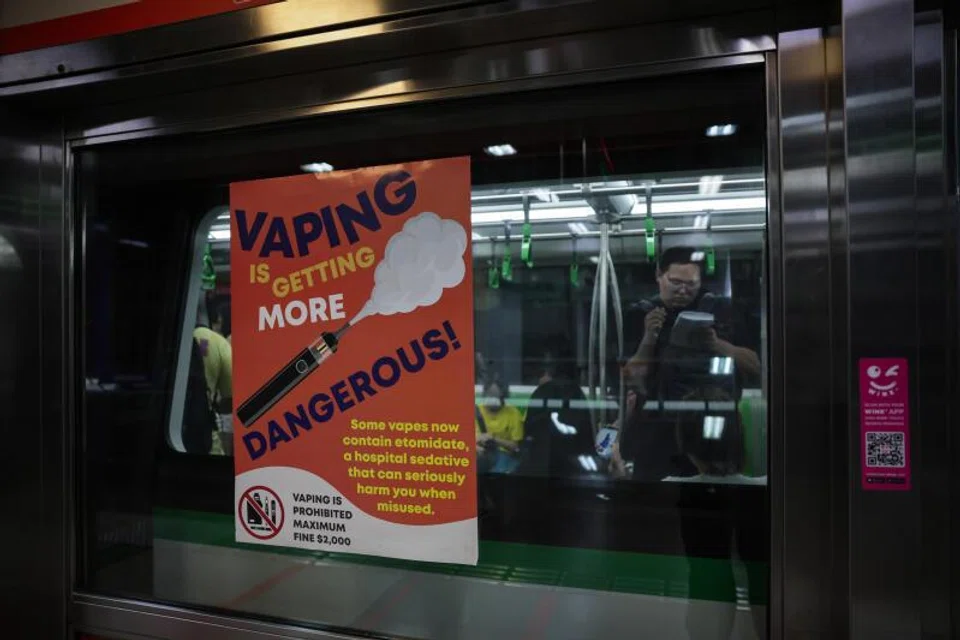
Key points:
Illegal tobacco market shrinks by 20%: JTI claims that with cooperation between the government and businesses, the proportion of illegal tobacco trade in Greece has decreased from approximately 30% to 20%, indicating successful efforts to combat it.
Japan Tobacco International (JTI) is strengthening its collaboration with the government through the signing of memoranda and promotional projects with agencies such as the Hellenic Federal Investigation Bureau (DAOE), in order to enhance the institutionalized coordination in combating illegal trade.
Support for science-driven regulation: JTI calls for updates to regulatory frameworks to adapt to the development of new tobacco products, emphasizing the importance of "flexible regulation" for innovation.
According to Reporter on April 12th, Lucine Ovumyan, Senior Vice President of Corporate Affairs and Communication at Japan Tobacco International (JTI), recently discussed the importance of combating illegal tobacco trade and scientific regulation at the Delphi Economic Forum X.
Ovfmyan emphasized that illegal tobacco trade is a major global issue, accounting for 11% of the total global tobacco trade. She pointed out that effective measures against this issue could increase public fiscal revenue by nearly 500 billion euros annually. In Greece, illegal trade causes losses of about 6 billion euros to the national treasury each year. However, thanks to the collaboration between government departments, relevant agencies, and the industry, the proportion of illegal market in Greece has decreased from around 30% in 2022 to approximately 20% currently.
Ovfiyang praised the cooperation between JTI and the Greek Public Administration Management Agency, and they signed a cooperation memorandum in 2023. The collaboration with the newly established Greek Federal Investigation Bureau (DAOE) has also shown significant results. She specifically mentioned the successful anti-illegal tobacco trade information campaign carried out by JTI and DAOE as a successful example of collaboration between the public and private sectors.
Furthermore, Offmyan pointed out that appropriate regulation can set boundaries, protect society, and promote innovation. She emphasized that regulation should shape rather than restrict the future.
Using tobacco and nicotine products as an example, she emphasized JTI's significant investment in new tobacco products that have the potential to reduce the health risks associated with traditional smoking. She stated that consumers should have the opportunity to use these products and that businesses should be encouraged to continue improving and upgrading.
She concluded, "Regulatory frameworks need to be constantly updated," citing the flexible regulatory model of the Organisation for Economic Co-operation and Development (OECD), stating that regulations should also evolve with scientific and technological advancements. Therefore, she emphasized that in the tobacco industry, innovative nicotine products also need to be effectively regulated based on scientific progress.
We welcome news tips, article submissions, interview requests, or comments on this piece.
Please contact us at info@2firsts.com, or reach out to Alan Zhao, CEO of 2Firsts, on LinkedIn
Notice
1. This article is intended solely for professional research purposes related to industry, technology, and policy. Any references to brands or products are made purely for objective description and do not constitute any form of endorsement, recommendation, or promotion by 2Firsts.
2. The use of nicotine-containing products — including, but not limited to, cigarettes, e-cigarettes, nicotine pouchand heated tobacco products — carries significant health risks. Users are responsible for complying with all applicable laws and regulations in their respective jurisdictions.
3. This article is not intended to serve as the basis for any investment decisions or financial advice. 2Firsts assumes no direct or indirect liability for any inaccuracies or errors in the content.
4. Access to this article is strictly prohibited for individuals below the legal age in their jurisdiction.
Copyright
This article is either an original work created by 2Firsts or a reproduction from third-party sources with proper attribution. All copyrights and usage rights belong to 2Firsts or the original content provider. Unauthorized reproduction, distribution, or any other form of unauthorized use by any individual or organization is strictly prohibited. Violators will be held legally accountable.
For copyright-related inquiries, please contact: info@2firsts.com
AI Assistance Disclaimer
This article may have been enhanced using AI tools to improve translation and editorial efficiency. However, due to technical limitations, inaccuracies may occur. Readers are encouraged to refer to the cited sources for the most accurate information.
We welcome any corrections or feedback. Please contact us at: info@2firsts.com







